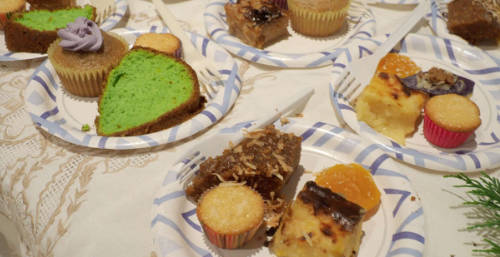Traditions
A Cultural Celebration of Philippine “Simbang Gabi”
BY ALEX C. ROMERO
Traditions Keep Our Balance….
"Because of our traditions, we've kept our balance for many, many years. Here in “Anatevka” we have traditions for everything... how to eat, how to sleep, even, how to wear clothes. For instance, we always keep our heads covered and always wear a little prayer shawl... This shows our constant devotion to God. You may ask, how did this tradition start? I'll tell you — I don't know. But it's a tradition... Because of our traditions, everyone knows who he is and what God expects him to do.”
“And how do we keep our balance? That I can tell you In one word... Tradition.”
Chorus: “Tradition, Tradition... Tradition!”
The paragraphs above are dialogue and lyrics from “Fiddler on the Roof,” the popular Broadway musical (1964) and film (1971) that tells the story of Tevye and his attempts to maintain his Jewish religious and cultural traditions even as outside influences encroach upon his family's lives. Even though the origins of some of those traditions are unknown, they continue to govern their way of life.
And everyone lives in a village…be it “Anatevka” or elsewhere.
Immigrants arrive in this country with traditions — some of which whose origins are known, and others whose origins are unknown — “But it is Tradition!” These newcomers are often considered distruptors of native traditions. We have all heard it in one form or another: “Why can’t __________ just celebrate ___________ the same way we do?”
 For the immigrants in this foreign world, though, the old traditions — regardless of their origin — are a vital tether to community, to belonging, to one's own identity. And so, while weaving, adapting, and trying to conform to new and unfamiliar practices in a distant land, immigrants cling to the traditions that have bound them to a culture and in many ways provided their very sense of self. And it is of course perfectly reasonable and healthy for them to do so.
For the immigrants in this foreign world, though, the old traditions — regardless of their origin — are a vital tether to community, to belonging, to one's own identity. And so, while weaving, adapting, and trying to conform to new and unfamiliar practices in a distant land, immigrants cling to the traditions that have bound them to a culture and in many ways provided their very sense of self. And it is of course perfectly reasonable and healthy for them to do so.
Perhaps, over time, a balance is achieved, and maybe even a positive assimilation of different cultural practices. Such a convergence of cultural ideas requires members of the native population to appreciate immigrants’ cultural traditions and to foster opportunities for them to celebrate and share them.
Simbang Gabi, or misa de gallo in Spanish (mass of the rooster), is a dawn mass (when the rooster crows). The Catholic religious practice takes place during the Christmas season, and was introduced to the Philippines during the Spanish colonial era (1521–1898). It’s a tradition that was started by the Mexican priests who were assigned to the Philippines around 1668. The hour of the mass was established to enable field workers to attend before they started work in the early morning. It is celebrated for nine days, from December 16 to December 24, the day before Christmas.
It is Tradition!
And we know the origin for this one — a spiritual preparation for December 25th.
This past December, Saint Philip Neri Catholic Church in Fort Mill, SC welcomed the Filipino community to celebrate the first mass of Simbang Gabi in the parish. It was initiated by the church group called Couples for Christ, a global Catholic lay organization founded by Filipinos. Father Fabio Refosco officiated the mass and sang the liturgical hymns in Tagalog (the Filipino language). The “songs” are part of the liturgy of the Catholic mass. A Filipino choral group provided the inspirational hymns, led by a talented pianist Zinorl Broñola, who is also from the Philippines and is Instructor of Theatre and Dance at Winthrop University in Rock HIll, SC.
 The community brought home-cooked Filipino food to share after the mass. The sharing of faith and food and time together provided a unique opportunity to develop new friendships and lend support to the newly organized church leaders in the Parish.
The community brought home-cooked Filipino food to share after the mass. The sharing of faith and food and time together provided a unique opportunity to develop new friendships and lend support to the newly organized church leaders in the Parish.
However any individual may have arrived in this country, each and every immigrant shares the common experience of embarking on a personal journey of discovery of this country — bound together in hope, faith, and prayer of how to manage the balance of cultures and to honor traditions both old and and new, whlie attaining a peaceful and fulfilling life.
